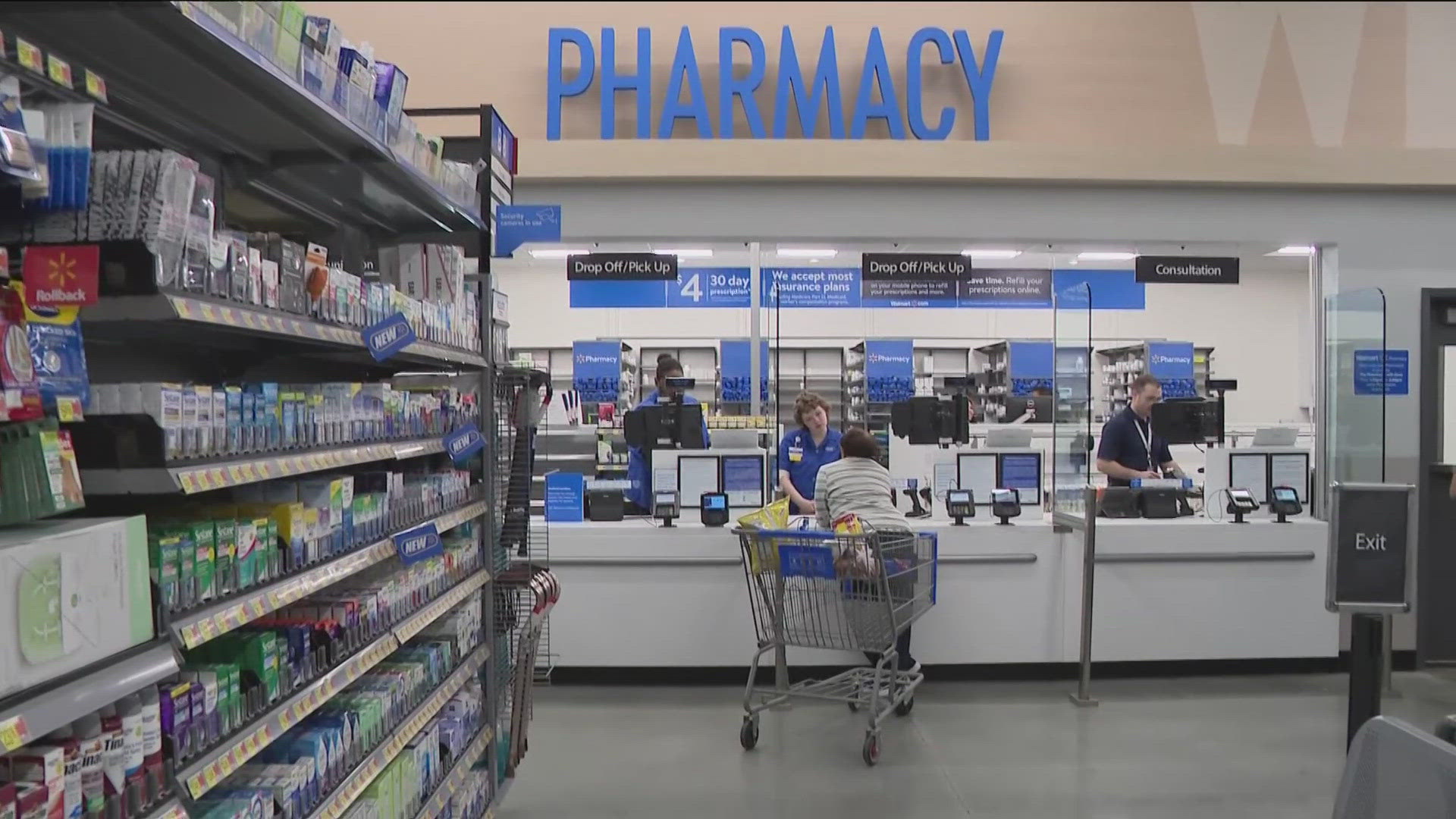ATLANTA — Atlanta's food desert is receiving funding after the Atlanta City Council unanimously approved a $6 million investment into the Atlanta Grocery and Fresh Food Providers Initiative.
This multi-million-dollar investment comes after 2020 findings showed that only 75% of metro Atlanta residents had access to fresh, affordable food. Now, the city's goal is to ensure that fresh, affordable food is within a half-mile of 85% of residents by 2025.
"There are fewer than 50 grocery stores (with 50 employees or less) in Atlanta, and the differential in the quality of the grocers is markedly different in the northeastern quadrants of the city versus the others," a release from the mayor's officer said.
According to a study on food insecurity conducted by the U.S. Department of Health and Human Services (DHHS), Black non-Hispanic households are more than two times more likely to be food insecure than the national average.
It also asserts that locations and physical access to food amplify the issue because low-income areas have fewer full-service grocery stores, and the stores in those areas have higher-priced, lower-quality monotonous food options.
The city's million-dollar investment is focused on changing what food security looks like in Atlanta.
In addition to ensuring residents are in close proximity to fresh food, the city also aims to:
- Create relationships with local food producers to better support and showcase regional agriculture
- Establish a sustainable and community-focused grocery store that meets the diverse needs of the City of Atlanta's residents
- Amplify food security and accessibility to food regardless of income
District 11 Councilwoman Marci Collier Overstreet, a driving force in the grocery investment legislation along with Councilwoman Andrea Boone, believes making affordable fresh food accessible to metro residents is 'critical' to the successful resurgence of low-income neighborhoods in Atlanta.
“Overcoming the prolonged disinvestment that has resulted in a highly recognizable deficiency of grocery stores and fresh food options in parts of Atlanta requires a concerted effort," Councilwoman Overstreet said in a statement.
This effort takes many forms: pushing for additional funding through the Dickens Administration and City Council, Invest Atlanta, and America's Healthy Food Financing Initiative.
“Through this fund, we can make a real difference in District 10 for our residents who have limited access to healthy foods. My constituents don’t have enough options, leaving them to buy food from the neighborhood gas stations and fast-food restaurants,” Councilwoman Boone said.
After the City Council's initial decision to invest $1.5 million dollars in a grocery store along the Campbellton corridor last September, Invest Atlanta began seeking out contractors to help develop a municipal grocery store after multiple grocery store chains declined to help fight food insecurity in the city. It is currently unknown if any contractors were found, but 11Alive reached out to the city and is awaiting a response.
A few days after Mayor Dickens' plea, America's Healthy Food Financing Initiative (HFFI) chose Atlanta as one of its 16 public-private partners to receive nearly $3 million dollars and push forward initiatives of equitable food access in Atlanta's low-income neighborhoods.
"Atlanta's selection for the Healthy Food Financing Initiative reinforces our ongoing commitment to reaching underserved communities and addressing the pressing issue of food access and food insecurity," Mayor Dickens said in an April statement. "We are thankful to the USDA for this investment that will enable us to increase access to healthy foods, stimulate economic development and foster a more vibrant and resilient city for all residents."
In a May announcement, Atlanta City County revealed that another $1 million will be allocated to combat food insecurity through job creation, investment incentives and the provision of tools needed to increase development.
“A lack of grocery stores makes people eat unhealthy food too often and creates economic disparities. This partnership with Invest Atlanta will give residents much better access to fresh and healthy foods, which will have a long-term positive impact on our citizens in the city of Atlanta," Councilwoman Boone said.

